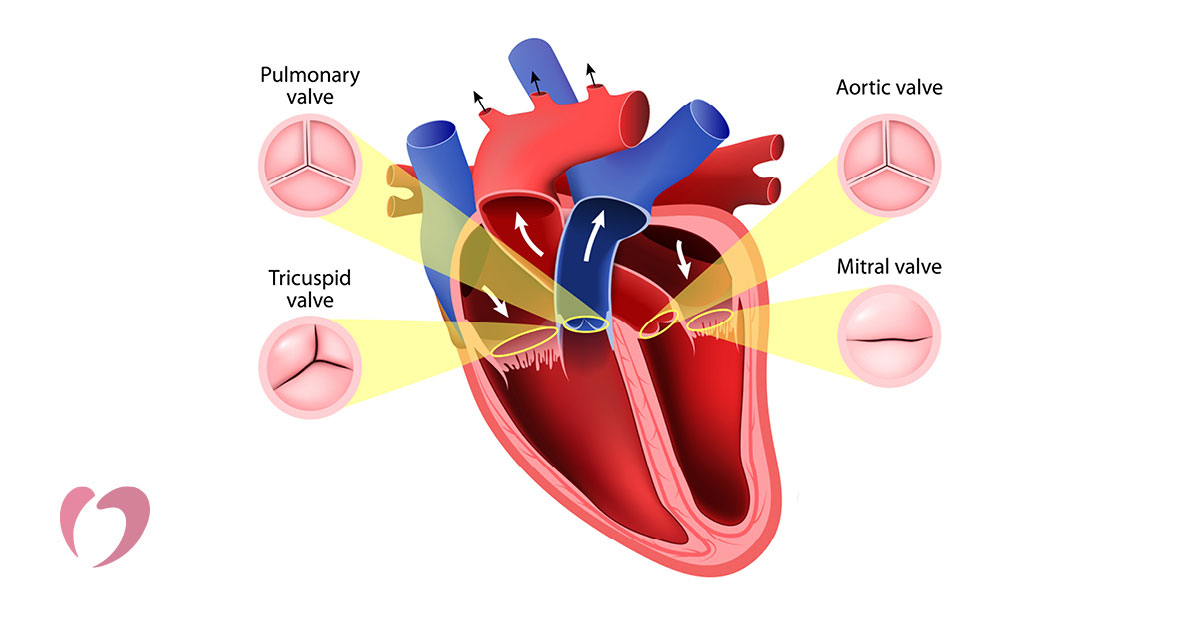Leaky Heart Valves: Causes, Diagnosis, and Treatment

If you or a loved one has been diagnosed with leaky heart valves, you may be wondering what that really means. The heart includes four chambers, and blood flows through those four chambers on its journey to and from the lungs for oxygen and then through the rest of the body. There are four valves in the heart that open to allow blood through and then close to prevent blood from flowing the wrong direction.
With a leaky valve, also called valve regurgitation, the valve doesn’t close properly and thus allows some blood to flow backward. Some leaky valves cause few or no complications and are never really noticed, while others can be very serious and require treatment. The treatment depends on which valve (or valves) are leaking and how serious the leak is.
What causes leaky valves?
Any one of the four valves in the heart can leak or a combination of valves can leak. One of the valves typically has three flaps, and some people are born with only two flaps, which results in a leaking valve. Trauma can cause valves to leak, as can infection of the heart valve or damage from rheumatic fever. High blood pressure, pulmonary hypertension, and an enlarged heart can also cause leaking valves. Some heart surgeries to correct heart defects in children may result in leaking valves later in life.
What are the risk factors?
Common risk factors for leaky valves are older age, family history, history of heart infections, high cholesterol, high blood pressure, obesity, diabetes, smoking, and lack of physical exercise. Some medications can also put you at risk of developing a leaky valve. While genetic or age-related risk factors can’t be changed, managing or reducing the controllable risk factors as much as possible can help reduce your overall risk for leaky valves. Not smoking, maintaining a healthy weight, and daily exercise like walking are important steps to reduce overall risk. As always, check with a doctor before beginning a new exercise program if you have any existing health conditions.
What are the symptoms of leaky heart valves?
As surprising as it seems, there are often no symptoms of leaking heart valves. There are many healthy people who have slightly leaky valves that cause no symptoms and are only diagnosed through a routine physical exam. Sometimes even a severe leak causes no or few symptoms.
More often, however, severe leaks impact the forward flow of blood through the heart, which can mimick symptoms of congestive heart failure. Symptoms include shortness of breath, both when exerting yourself and when lying flat, leg swelling and other fluid retention, lightheadedness, rapid heartbeat, heart palpitations or flutters, fatigue, chest discomfort, or rapid weight gain. Any of these symptoms are an indication to schedule an appointment with your doctor to check for leaky valve or other heart conditions.
How are leaky valves diagnosed and treated?
Doctors diagnose leaky valves primarily through listening for heart murmurs with a stethoscope. Whether you come in for a routine physical or after noticing symptoms, this is often the first way leaks are detected. When there are symptoms or a doctor hears a murmur, the next step is an echocardiogram, an ultrasound of the heart, to determine the final diagnosis.
The good news about leaky heart valves is that they are highly treatable. Treatment varies based on the cause and how much the leak is affecting the body. Many minor valve leaks are simply observed for change over time. Regular follow up and routine health visits are important as a part of the observation process. Depending on which valve is leaking, medicines ranging from diuretics to reduce swelling to blood pressure medications called vasodilators may be used to correct the leaking valve. Some are treated by treating the underlying cause such as blood pressure, high cholesterol, or diabetes. Your symptoms and the results of your echocardiogram are used to determine how serious the leak is. In the most serious cases, valve repair or replacement surgery is the necessary treatment.
While some leaky heart valves are minor and go unnoticed for many years, others can be quite serious and cause many complications. Managing your health and risk factors is the best way to prevent leaky heart valves. If you are having symptoms of leaky valves, contact Oklahoma Heart Hospital to schedule an appointment with one of our physicians today.
